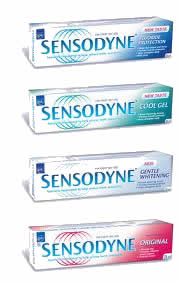IMPACT OF HEALTH CARE FINANCING REFORMS ON THE MANAGEMENT OF MALARIA IN GHANA
Abstract
Objective: To determine the impact of the introduction of the 'cash and carry' system on how
health care providers manage malaria cases in Ghana
Design: A cross sectional study of treatment patterns of cases o' malaria.
Setting: Health services in Ghana changed significantly in 1992, from being virtually free to
a 'cash and carry' system in which all patients attending government health services had to
pay in full for drugs and services. Staff of private companies a1 ~d parastatal organisations
continue to enjoy free health services at other clinics and hospi als.
Subjects: Prescriptions for 9539 cases diagnosed as having rnalaria at the out-patient
departments (OPD) of eight health facilities four in the 'cash and carry' scheme and four
outside this scheme were reviewed.
Results: The mean (SD) number of drugs prescribed per case of malaria was higher for the
'cash and carry' group than for the 'free for service' group; 4.5 t1.3 versus 3.8k1.3 (p value
<.001). Injection chloroquine was used more frequently in the ' :ash and carry' group than
in the 'free service' group 56.4% and 28.6% respectively (p value < .001). Second-line
antimalarial drugs were however, more often used in the 'free s :rvice' group 13.5 % versus
7.3% (p value <.001). About 30% of the 'cash and carry' 1;roup received antibiotics,
compared with 15.5% of the 'Free Service' group. Logistic regression analysis showed that
the modality of payment for services contributed significantly t 1 whether a case of malaria
was managed with more than three drugs, or received injectio~ I chloroquine or antibiotics
or a non-steroidal anti-inflammatory drug.
Conclusion: Evidence in this study suggests that health care roviders tend to pay more
attention in treating the symptoms of malaria in cases in which patients pay for service. This
leads to unnecessarily high costs of care for the individual and the health system.
health care providers manage malaria cases in Ghana
Design: A cross sectional study of treatment patterns of cases o' malaria.
Setting: Health services in Ghana changed significantly in 1992, from being virtually free to
a 'cash and carry' system in which all patients attending government health services had to
pay in full for drugs and services. Staff of private companies a1 ~d parastatal organisations
continue to enjoy free health services at other clinics and hospi als.
Subjects: Prescriptions for 9539 cases diagnosed as having rnalaria at the out-patient
departments (OPD) of eight health facilities four in the 'cash and carry' scheme and four
outside this scheme were reviewed.
Results: The mean (SD) number of drugs prescribed per case of malaria was higher for the
'cash and carry' group than for the 'free for service' group; 4.5 t1.3 versus 3.8k1.3 (p value
<.001). Injection chloroquine was used more frequently in the ' :ash and carry' group than
in the 'free service' group 56.4% and 28.6% respectively (p value < .001). Second-line
antimalarial drugs were however, more often used in the 'free s :rvice' group 13.5 % versus
7.3% (p value <.001). About 30% of the 'cash and carry' 1;roup received antibiotics,
compared with 15.5% of the 'Free Service' group. Logistic regression analysis showed that
the modality of payment for services contributed significantly t 1 whether a case of malaria
was managed with more than three drugs, or received injectio~ I chloroquine or antibiotics
or a non-steroidal anti-inflammatory drug.
Conclusion: Evidence in this study suggests that health care roviders tend to pay more
attention in treating the symptoms of malaria in cases in which patients pay for service. This
leads to unnecessarily high costs of care for the individual and the health system.
Refbacks
- There are currently no refbacks.


